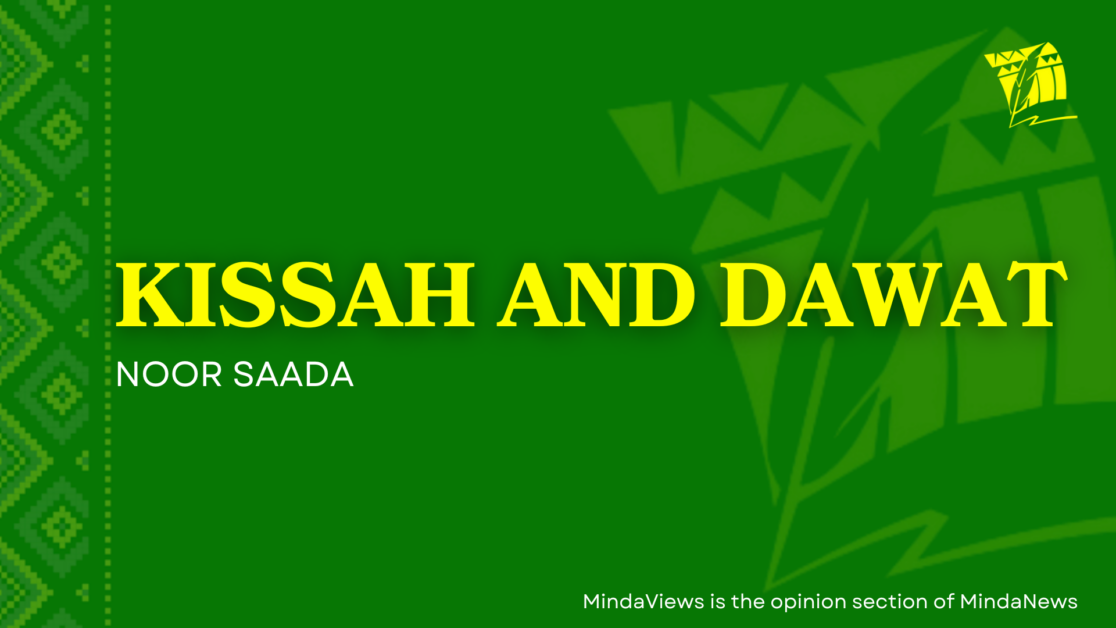
SIMUNUL, Tawi-Tawi (MindaNews / 2 Oct) – Visiting Simunul feels like being in a coastal suburb of a city, with beautifully designed and painted houses that reflect the generous incomes of their owners, many of whom work in Sabah (Malaysia), the Middle East, or hold permanent positions in the government sector.
The experience gets even better at night, strolling through the neighborhood with ease, peace, and leisure. There are many picturesque, Instagram-worthy spots, especially the sunset and the panorama of Bongao to the west. We continued strolling until nearly midnight, with many windows, doors, and gates still open, a testament to the strong sense of security in the community. When our host invited us for an evening stroll, the windows, doors, and gate remained open. They were more concerned about stray dogs entering their premises than about burglars. As a visitor to this island, I was left tongue-tied and lost for words by this profound experience.
Tonight, there is a wedding in a nearby neighborhood, and many are making their way to the bride’s house for the bersanding, a traditional display of the newly-married couple perched on a temporary stage. It is a way of announcing to the community that these two young people are now married and should be respected as such. The celebration includes both traditional and modern music, with a mix of Sinama and English songs. Sinama love songs, whether about requited or unrequited love, evoke powerful emotions from the attendees.
This kind of community ambiance is emblematic of the Sama, Badjao, and Jama Mapun people, for whom peace is deeply valued and lived. Indeed, this is one reason why Tawi-Tawi is the most peaceful of the provinces in the region. These people are inherently pacifist, a trait sometimes misunderstood by outsiders, who might mistake their quiet and laidback demeanor for reticence or even cowardice. However, outsiders can be forgiven for not fully appreciating the depth of the Sama psyche.
The Sama people value peace more than any material wealth or status. “Pangeyyan nu altâ maka kawasa bang paglahat nu mareyom kasusahan” – what value is wealth or power if one’s community is in a state of stress or anxiety?
The concept of peace in the Sama psyche has three dimensions:
Firstly, there is sannang, referring to a general sense of peace. This state embodies tranquility and harmony within oneself and with the surrounding environment. It reflects a holistic contentment that permeates daily life, allowing individuals to navigate challenges with a calm demeanor. A Sama experiencing sannang finds joy in simple moments, such as enjoying nature or spending time with family, free from external pressures.
Secondly, there is salamat, denoting the absence of conflict, or negative peace. This form of peace emphasizes the resolution of disputes and the maintenance of harmonious relationships within the community. While it may not always indicate deep fulfillment, it creates a stable environment where individuals coexist without fear or tension. In a Sama community, salamat might manifest through peaceful conflict resolution among neighbors or families, leading to peaceful coexistence even if some issues remain unresolved. Any form of agreement, no matter how small, is valued if it leads to a state of salamat.
Engr. Muhammadnur Muhammad, former Dean of Engineering at Western Mindanao State University, shares his experience: “In Sibutu, we have three forms of sannang –sannang pikilan (peaceful mind), sannang atey (peaceful heart), and sannang baran (peaceful body). Salamat is also used as a form of duwaa (invocation). When someone is sick, we say “salamat kow laan sakki nu” (may you find peace, may your sickness be cured). When someone is going on a journey, we say, “salamat kow” (may your travel be safe and peaceful).
Finally, there is sugpat akkal, which signifies a sense of personal or mental peace. This dimension focuses on inner tranquility and emotional well-being. It involves self-reflection, mindfulness, and the ability to cope effectively with stressors. Achieving sugpat akkal allows individuals to maintain clarity of thought and emotional resilience. A Sama who engages in self-reflection may experience sugpat akkal, leading to improved focus and decision-making in both personal and professional life.
For the Sama people, peace in the forms of sannang, salamat, and sugpat akkal leads to a fulfilling life and a tranquil kowman (community), which they consider far better than winning an argument, displaying arrogance, or seeking hegemony. As young Sama professional Adzlan Dela Peña Gunong from Tabawan puts it: “Prioritize your peace over everything else.” Peace is not a stepping stone; it is the end-goal for the Sama, both in this dunya (world) and in the akhirah (hereafter).
(MindaViews is the opinion section of MindaNews. Noor Saada is a Tausug of mixed ancestry – born in Jolo, Sulu, grew up in Tawi-Tawi, studied in Zamboanga and worked in Davao, Makati and Cotabato. He is a development worker and peace advocate, former Assistant Regional Secretary of the Department of Education in the Autonomous Region in Muslim Mindanao, currently working as an independent consultant and is a member of an insider-mediation group that aims to promote intra-Moro dialogue.)
0 Comments